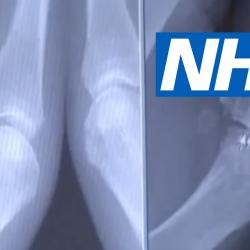Rheumatoid arthritis (RA) is a long-term condition that causes swelling, stiffness, pain, and loss of function in the joints. RA most commonly affects the hand and wrists, but can also affect the elbows, neck, shoulders, hips, knees, and feet. Other symptoms of RA include fatigue, fever, anaemia and a sense of not feeling well (malaise). RA also increases the risk of thinning of the bones (osteoporosis), particularly in those taking corticosteroid drugs such as prednisone. RA is an autoimmune disease. An autoimmune disease occurs when the immune system (which fights infections) attacks the cells lining the joints, causing inflammation. The disease can affect other body organs as well, causing dry eyes and mouth, which are symptoms of a closely related autoimmune disease called Sjögren syndrome.
Rheumatoid arthritis usually develops slowly between the ages of 20 and 45. More than 75% of patients are women. RA is different from osteoarthritis, in which joint tissues wear down from repetitive use or age. RA usually affects joints in a symmetrical way. For example, if one knee is affected, the other knee is also likely to be affected. The disease may be partly inherited through genes, but other, non-genetic factors are likely to be involved, including some kind of a trigger, such as an infection; the disease is not contagious, however. Smoking has also been shown to increase the risk of developing RA and may worsen symptoms.


